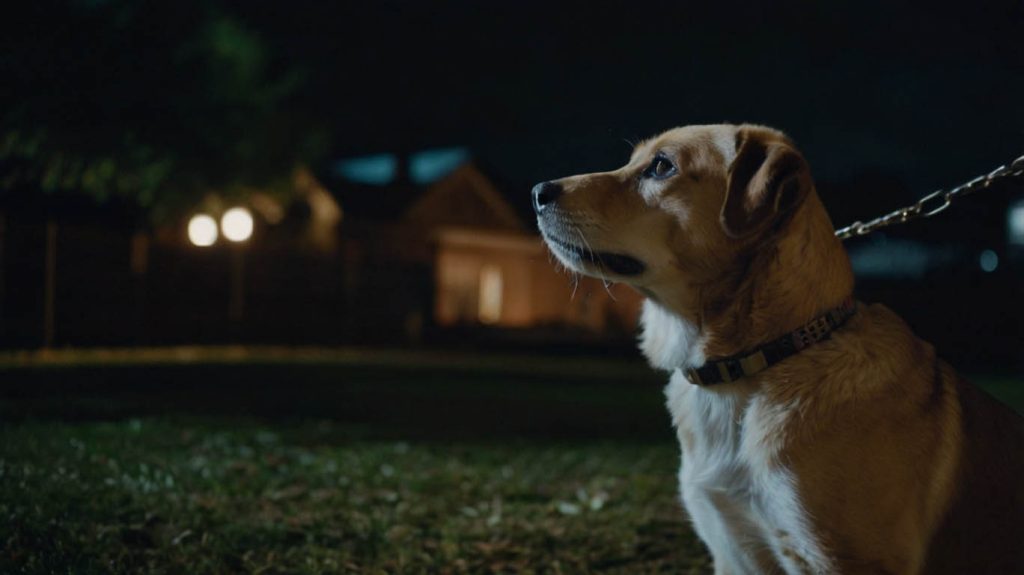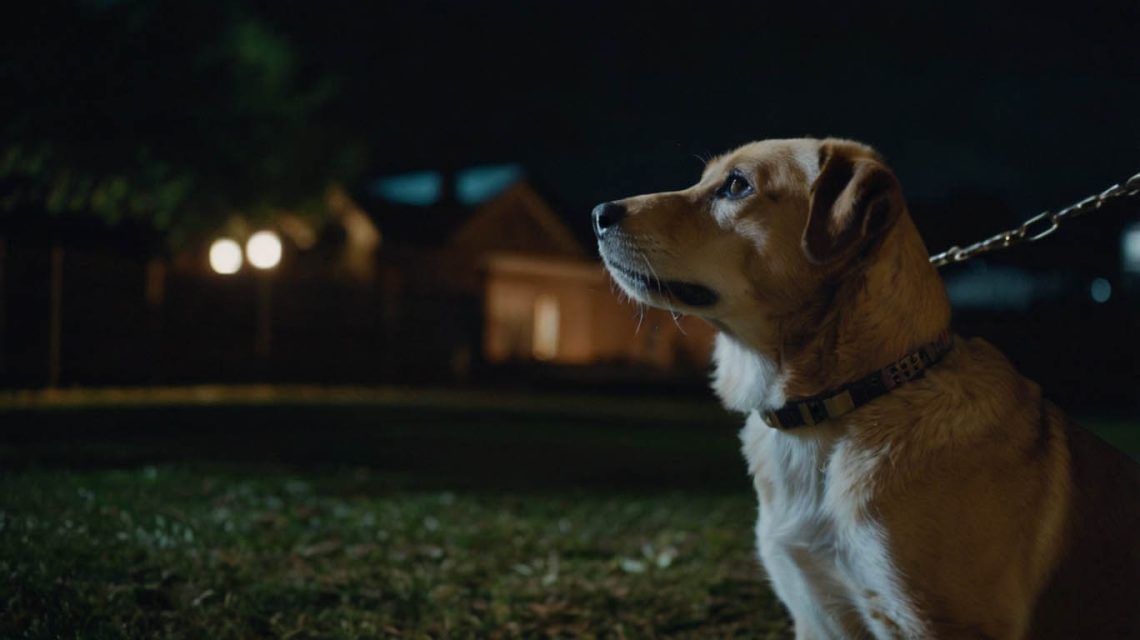You finally crawl into bed after a long day. The room is dark, the house is still—and then it starts. Your dog’s barking pierces the silence, echoing across the neighborhood. If this sounds familiar, you’re not alone. Many dog owners struggle with figuring out how to stop dog barking at night outside.
Although it may seem like your dog is being loud for no reason, barking is almost always a response to something. Whether it’s boredom, fear, or habit, understanding the why behind your dog’s barking is the first step toward solving the problem.
Let’s take a deep dive into how to stop dog barking at night outside, backed by behavior science, case studies, and practical training advice.
Why Dogs Bark at Night Outside in the First Place
Before you can stop the barking, you have to understand it. Dogs use barking as a primary form of communication. When it happens at night outdoors, it’s usually due to:
- Environmental triggers (wildlife, passing cars, noises)
- Territorial behavior
- Anxiety or separation stress
- Lack of exercise or mental stimulation during the day
- Reinforced behavior (barking = attention)
This knowledge is the foundation for fixing the issue. Knowing how to stop dog barking at night outside means addressing the root cause—not just the symptom.

Real-Life Scenario: Charlie the Night Barker
Charlie, a 3-year-old Beagle, barked at every shadow in the backyard. His owners thought he was just being disobedient. But after setting up a motion camera, they discovered raccoons were visiting nightly. By removing the attractants (leftover dog food and an open trash can), the visitors stopped—and so did Charlie’s barking.
This illustrates how sometimes, the fix is simpler than expected. You just need to look from your dog’s perspective.
How to Stop Dog Barking at Night Outside Using a Routine
Dogs thrive on consistency. By setting a bedtime routine, you provide comfort and security. Try this:
| Time | Activity |
|---|---|
| 8:00 PM | Evening walk or playtime |
| 8:30 PM | Calm activity (chew toy) |
| 9:00 PM | Final potty break |
| 9:15 PM | Indoors, lights dimmed |
If your dog is inside and settled, they’re far less likely to bark when outside noise occurs. A structured routine can significantly support your mission to stop dog barking at night outside.
Exercise and Enrichment: A Tired Dog is a Quiet Dog
One of the most effective ways to stop nighttime barking is to ensure your dog is mentally and physically tired. Some ideas include:
- A 30-minute evening walk
- Puzzle feeders or snuffle mats
- Hide-and-seek with treats
- Basic command training games
Dogs with unmet energy needs often seek stimulation through barking. By tiring them out before bedtime, you’re proactively addressing the problem.
Training Techniques to Stop Dog Barking at Night Outside
Consistency is key. Here are proven techniques:
Desensitization and Counterconditioning
Expose your dog to nighttime triggers during the day at low intensity. Reward calm behavior. Over time, increase exposure until your dog learns not to react.
“Quiet” Command
Teach the “quiet” cue during the day. Use it consistently at night with a calm voice. Reward silence immediately.
Interrupt and Redirect
Use a distraction (like a treat or favorite toy) when barking starts. Redirect their focus, then reward the calm behavior.
These strategies take time but work well for dogs who bark from habit or alertness.
How to Stop Dog Barking at Night Outside with Environmental Changes
Modify your dog’s environment to remove common triggers:
- Install privacy fencing to block visual stimuli
- Use white noise machines to mask subtle sounds
- Motion-activated lights can deter wildlife
- Keep windows closed at night to minimize sound
Remember, changing what your dog sees or hears often changes how they behave.
Using Positive Reinforcement Instead of Punishment
Yelling or using bark collars may seem like a quick fix, but they often create more anxiety—and more barking. Instead, reward silence.
Example:
Your dog barks. Wait for 3 seconds of quiet. Say “good quiet” and offer a treat. Gradually increase the silent duration required before rewarding.
This teaches that quiet = reward, reinforcing the behavior you want instead of punishing the one you don’t.
How to Stop Dog Barking at Night Outside When You’re Not Home
If your dog is barking while you’re away or asleep:
- Install a pet camera to observe behavior
- Use calming pheromone diffusers (Adaptil is a popular brand)
- Provide interactive toys to prevent boredom
- Consider a crate or pen indoors where they feel safe
In some cases, allowing your dog to sleep indoors can eliminate the problem entirely.

Case Study: Luna Learns to Stay Quiet
Luna, a German Shepherd, barked every night between midnight and 2 AM. Her owner discovered she was reacting to a neighbor’s porch light turning on. With a combination of a white noise machine, obedience training, and more exercise before bed, Luna became noticeably calmer.
Within three weeks, the nightly barking was gone. This story shows that with effort and consistency, you can learn how to stop dog barking at night outside successfully.
Should I Let My Dog Bark It Out?
No. Ignoring barking can sometimes work—but often, it reinforces the behavior. Your dog might bark longer, thinking they just need to try harder to get your attention.
Instead, calmly interrupt the behavior, redirect, and reinforce quiet moments. Over time, your dog will understand what earns praise and what doesn’t.
Professional Help: When to Call a Trainer
If you’ve tried everything and barking continues:
- Contact a certified dog trainer or behaviorist
- Rule out medical issues (e.g., hearing problems, cognitive dysfunction)
- Explore medication or supplements if anxiety is diagnosed
Sometimes, persistent barking is a symptom of something deeper. Getting expert help is a wise and proactive step.
FAQs
Why does my dog only bark at night?
They may be reacting to environmental triggers or experiencing separation anxiety.
Can I use a bark collar?
Not recommended. These tools may increase anxiety and damage your relationship.
Should I bring my dog inside at night?
If barking persists, yes. Many dogs sleep more peacefully indoors with fewer triggers.
Does neutering help with barking?
Sometimes. Neutering can reduce territorial behaviors, especially in males.
What if my dog barks at specific animals at night?
Identify the animal (cats, raccoons) and use deterrents like motion lights or scents.
How long does it take to fix this behavior?
With consistent effort, many dogs improve within 2–4 weeks.
Conclusion: Peaceful Nights Start with a Plan
Learning how to stop dog barking at night outside isn’t just about silencing your dog—it’s about understanding and supporting them. Barking is communication, and with the right routine, environment, and training, you can create peaceful nights for both your household and your neighbors.
Start small. Be consistent. Stay patient. Your efforts will pay off with restful sleep and a happier dog.


